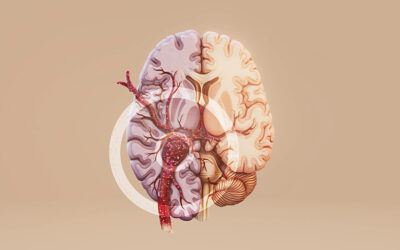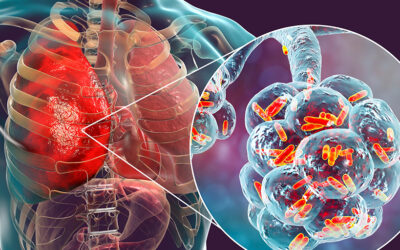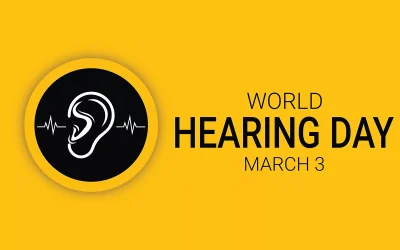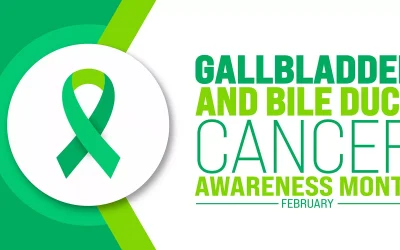Heart Block: Types, Causes, Symptoms, and Treatment Options
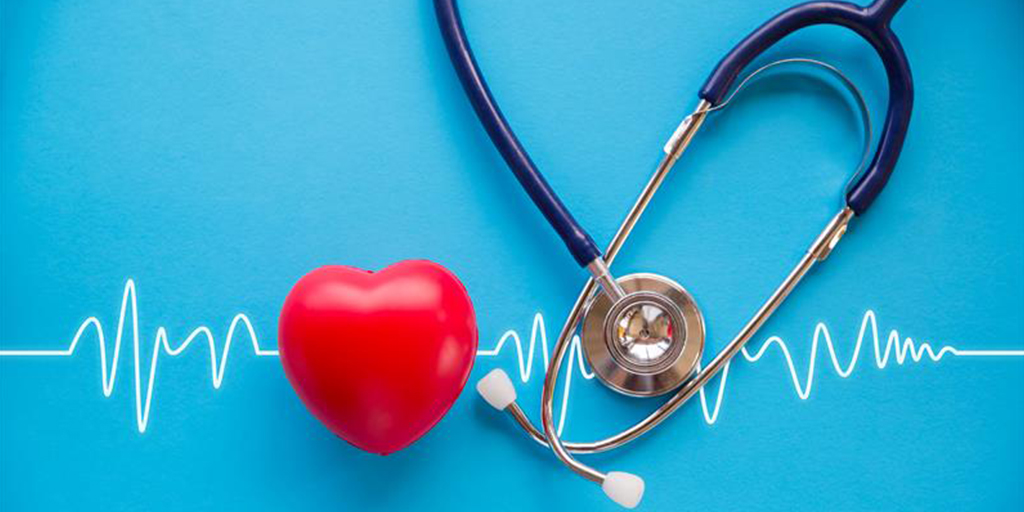
A heart rate of 60 to 100 beats per minute is a sign of wellness for adults. However, when heartbeats become slower than usual, it may indicate a heart block, which is the inability of the heart to pump out blood and, in turn, oxygen to the body. While symptoms such as chest pain, palpitations, or lightheadedness can sometimes seem alarming, many cases of heart blocks are manageable with timely medical care. In this article, we discuss the types, causes, and symptoms of heart block. We also discuss effective treatment options.
Table of Contents
ToggleWhat is a Heart Block?
A heart block is a condition in which the heart’s electrical conduction system, which controls the pumping of heart muscles, malfunctions. Delay or obstruction of electric impulses travelling from the top chambers (atria) to the bottom chambers (ventricles) leads to irregular or slower heartbeats. Heart block disrupts the electrical rhythms, prompting the heart muscles to contract and pump blood, affecting overall heart performance.
What are the Types of Heart Block?
The heart’s conduction system consists of structures such as Sinoatrial (SA) node, Atrioventricular (AV) node, and the His-Purkinje system comprising the bundle branch and fascicular divisions. An obstruction in any of these areas can slow down or restrict the movement of heart signals.
The degrees of heart block, from first to third, represent the ascending severity of the block. Here are the types of heart blocks according to their location:
- Sino-atrial Exit Blocks: A blockage affecting the connection between the SA node (the heart’s natural pacemaker) and atria, often classified as a second-degree heart block.
- First-degree AV heart block: Electrical impulses move from atria to the ventricles, albeit at a slower pace than usual.
- Second-degree AV heart block (incomplete heart block): Impulses make it to the ventricles only some of the time. It can be of two types:
- Type I, also called Mobitz Type I or Wenckebach’s AV block: Electrical signals become progressively slower until the heart skips a beat.
- Type II, also called Mobitz Type II: A more serious form of heart block in which heartbeats start to become irregular. The electrical impulses reach the ventricles often but not always.
- Third-degree AV heart block (complete heart block): It is the most severe form of heart block in which no signals pass between the AV nodes and the ventricles.
- Right Bundle Branch Block (RBBB): A conduction block in the heart’s right bundle branch.
- Left Bundle Branch Block (LBBB): An intraventricular block affecting the left bundle branch.
- Left Anterior Fascicular Block (LAFB): A common intraventricular block affecting the left anterior fascicle of the left bundle branch.
- Left Posterior Fascicular Block (LPFB): A rare intraventricular block affecting the posterior fascicles of the left bundle branch.
- Bifascicular Blocks: An intraventricular block in two of three fascicles, i.e., RBBB along with either LAFB or LPFB.
- Nonspecific Intraventricular Conduction Defects (IVCD): A type of intraventricular heart block that does not meet the criteria specific to RBBB or LBBB.
What are the Signs and Symptoms of Heart Block?
Signs and symptoms of mild heart blocks are usually not noticeable. That said, here are some of the symptoms that warrant a doctor’s attention:
- Shortness of breath
- Chest pain
- Rapid breathing
- Heart palpitations
- Fainting
- Fatigue
- Dizziness
- Nausea
It is critical to understand that second-degree and third-degree heart blocks are medical emergencies requiring immediate attention.
What are the Causes of Heart Block?
A heart block may be present at birth, but most commonly develops later in life. Here are common causes of heart block:
- Congenital heart defects: Structural or electrical abnormalities in the heart present from birth.
- Autoimmune diseases: Chronic diseases, especially those passed on to a baby before birth, in which the body’s immune system attacks the body rather than defending it.
- Coronary artery disease: Narrowing or blockage of the blood vessels due to plaque buildup.
- Heart attack: Rupture of a blocked artery of the heart due to excess plaque that causes heart muscles to die.
- High blood pressure: Excessive pressure that damages the heart’s muscles.
- Heart valve disease: Disrupted blood flow to the heart.
- Infections: Infections, such as myocarditis, that inflame the heart tissue.
- Certain medications: Long-term use or overdose of certain drugs such as beta-blockers, calcium channel blockers, or anti-depressants.
- Heart damage during surgery: Inadvertent damage to the structure of the heart during surgery.
- Exposure to toxins: Harmful toxins can impair the heart’s electrical system.
- Age-related degeneration: Wear and tear in the heart’s conduction system.
- Electrolyte imbalances: Abnormal levels of potassium and magnesium that interfere with the heart’s electrical system.
- Obstructive sleep apnea: Episodes of partial or complete blockage of the upper airway during sleep.
Read more-How to Boost Immunity Naturally: Evidence-Based Tips for Stronger Immunity
What are the Risk Factors for Heart Block?
In some cases, heart block may be preventable. Below are both non-preventable and preventable risk factors of heart block:
Non-Preventable risk factors
- Old age
- Family history of heart blocks or heart disease
- Congenital defects
- A recent open-heart surgery
- An overactive vagus nerve (connecting the brain, heart, and the digestive system) that slows down the heart
- Hyperkalemia, or high levels of potassium, due to kidney disease
Preventable risk factors
- Lifestyle diseases, such as diabetes and blood pressure
- Medications that interfere with the heart’s functioning
- Infections, such as Lyme disease
- Smoking and consumption of hazardous substances known for their toxicity
- Stress, which can lead to inflammation and high blood pressure
- Severe and uncontrolled hyperthyroidism
What are the Complications of Heart Block?
A heart block increases the risk of many other conditions, including:
- Atrial fibrillation: Rapid heartbeats that increase the risk of blood clots and stroke
- Bradycardia: Reduced heart rate
- Heart failure: Inability of the heart to pump blood properly
- Heart attack: Damage to the heart muscles due to blockage of blood flow
- Sudden cardiac arrest: Sudden halt of heart function
Prompt medical intervention is essential to prevent complications of heart block.
Read more- High-Fibre Diet: Health Benefits and Top Fibre-Rich Foods
How is Heart Block Diagnosed?
Heart block is often detected during routine checkups through an ECG, particularly in asymptomatic first-degree cases. Doctors use a combination of approaches for heart block diagnosis, including:
- Review of symptoms: Discussion on the symptoms reported by the patient.
- Review of medical history: Assessment of underlying health conditions, current medications, and family history of diseases.
- Discussion about the patient’s lifestyle: Overall health, level of physical activities, eating habits, and habits of smoking or drug use.
- Physical examination: Evaluation of the heart with a stethoscope and identification of visible symptoms, such as swelling in ankles or legs.
- Blood tests: To rule out infections and electrolyte imbalances.
- Electrocardiogram: Monitoring of heart wave patterns through non-invasive probes.
- Echocardiogram: Ultrasound of the heart to assess its structure and functioning.
- Holter monitor: Study of heartbeats over a few days through a portable device worn under clothing.
- Loop recorder: A small implantable device used for long-term heart rhythm monitoring (up to 3 years).
- Electrophysiology study: Measurements of electrical impulses of the heart using cardiac catheters and EKG.
- Exercise stress test: Monitoring of heartbeats during rest and while performing physical activities.
Accurate diagnosis of heart block and its cause is crucial because it helps doctors develop treatment strategies.
How is Heart Block Treated?
The choice of a heart block treatment depends on its type and severity, the patient’s symptoms, and their overall heart function. Common strategies include:
- Regular checkups and monitoring: Usually no active treatment is required for first-degree and type I second-degree heart blocks. Doctors may recommend regular checkups and self-monitoring of pulse rates.
- Medications: Adjustments or prescriptions may be made to address conditions causing the heart block.
- Pacemaker: A small battery-powered device implanted temporarily or permanently to regulate heartbeat. It sends electrical pulses to help the heart beat regularly in a consistent rhythm, typically used for symptomatic second and third-degree heart block patients.
- Treatment for underlying causes: Doctors may use medications or other interventions to treat an infection or electrolyte imbalance causing the heart block.
- Lifestyle changes: Along with medical treatments, doctors advise patients to adopt healthy habits, such as maintaining a healthy weight, engaging in regular physical exercises, and adopting a healthy diet to manage conditions, such as diabetes and blood pressure.
How to Prevent Heart Block?
Adopting a heart-healthy lifestyle can help individuals reduce the risk of heart blocks. Some of the measures you can follow include:
- Manage chronic lifestyle conditions: Keep cholesterol, blood pressure, and diabetes levels in control.
- Monitor medications: Take prescribed medications timely and report any unusual side effects to your doctor.
- Regular exercise: Ensure at least 150 minutes of moderate-intensity exercises per week along with some weight training.
- Healthy diet: Prioritise fresh fruits, vegetables, whole grains, and lean proteins while avoiding trans fats and processed foods.
- Quit Smoking: Smoking triggers inflammation and increases heart disease risk, making cessation crucial.
- Abstain from alcohol: Toxins in alcoholic drinks can damage your heart muscles. Avoid alcohol consumption.
- Manage stress: Adopt strategies to keep stress under control and minimise the chances of heart disease.
- Regular health checkups: Screenings and health checkups may help doctors identify early signs of heart block and prevent complications.
Conclusion
Regular and consistent heartbeats are crucial for the heart to pump out blood effectively and ensure proper functioning of the body. Heart block is a manageable and often preventable condition with timely intervention. Armed with the knowledge about the types, causes, and ways to prevent heart block, we hope you understand this condition and its management better. If you or someone near you experiences any symptoms of a heart block, consider seeking immediate care from a cardiologist at Graphic Era Hospital. Our cardiology team offers a comprehensive range of treatments, including pacemaker implantation, to restore healthy heart rhythms.
Frequently Asked Questions
How long can a heart block last?
The duration of a heart block varies; some cases, like those following heart surgery, resolve on their own. In contrast, some heart blocks are permanent and may require lifelong treatment.
How long does it take to recover from a heart block?
Recovery from heart block depends on the type and severity of the condition and the prescribed treatment. Individuals with first-degree heart block often lead normal lives without significant complications. Patients with second and third-degree heart blocks require a pacemaker. Recovery after pacemaker implantation typically allows a return to regular activities within days or weeks.
What are the possible complications/side effects of pacemaker surgery?
Pacemaker surgery may lead to complications, including infections, blood clots, heart injury, or device malfunction. Promptly report side effects to your doctor.
Is third-degree heart block life-threatening?
Yes, a third-degree heart block can be life-threatening. Prompt medical attention significantly improves outcomes.
Can an ECG detect a heart block?
Yes, an electrocardiogram (ECG) is one of the main tests for the diagnosis of heart block. An ECG measures the heart’s electrical activity and helps identify abnormalities.
Is heart block the same as heart blockage?
No, a heart block is an issue with the electrical system of the heart, whereas a heart blockage refers to the narrowing or complete obstruction of the arteries supplying the heart muscles.
Can heart block be cured?
No, while some heart blocks may resolve on their own or with the adjustment of medications that have caused the block, others require interventions like permanent pacemakers to maintain proper heart function for the remainder of one’s life.
By Specialities
- Bariatric Surgery
- Cancer Care
- Cardiology
- Dental
- Dermatology
- Diabetes & Endocrinology
- Endocrinology and Diabetes
- ENT (Ear Nose Throat)
- Eye Care
- Gastroenterology
- Haematology
- Health Awareness
- Health Care
- Health Tips
- Hematology
- Hepatology
- Internal Medicine
- Mental Health and Behavioural Sciences
- Metabolic
- Neonatology
- Nephrology
- Neurology
- Nutrition & Dietetics
- Obstetrics & Gynaecology
- Oncology
- Ophthalmology
- Orthopaedics
- Paediatric
- Physiotherapy & Rehabilitation
- Plastic and Reconstructive Surgery
- Psychology
- Pulmonology
- Rheumatology
- Spine
- Urology
Recent Posts
- A Complete Guide to Blood Clots in the Brain
- Heart Attack: Symptoms and Treatment
- World Obesity Day 2026: Understanding, Preventing, and Managing Obesity
- Bacterial and Viral Pneumonia: Causes, Symptoms, and Treatment Options
- World Hearing Day 2026: Empower Yourself to Protect and Improve Your Hearing
Need expert medical advice?
Share your details and our healthcare specialists will reach out to assist you.
By proceeding, you acknowledge and agree to our Privacy Policy, Terms of Use, and Disclaimer.
